Embed presentation
Downloaded 347 times
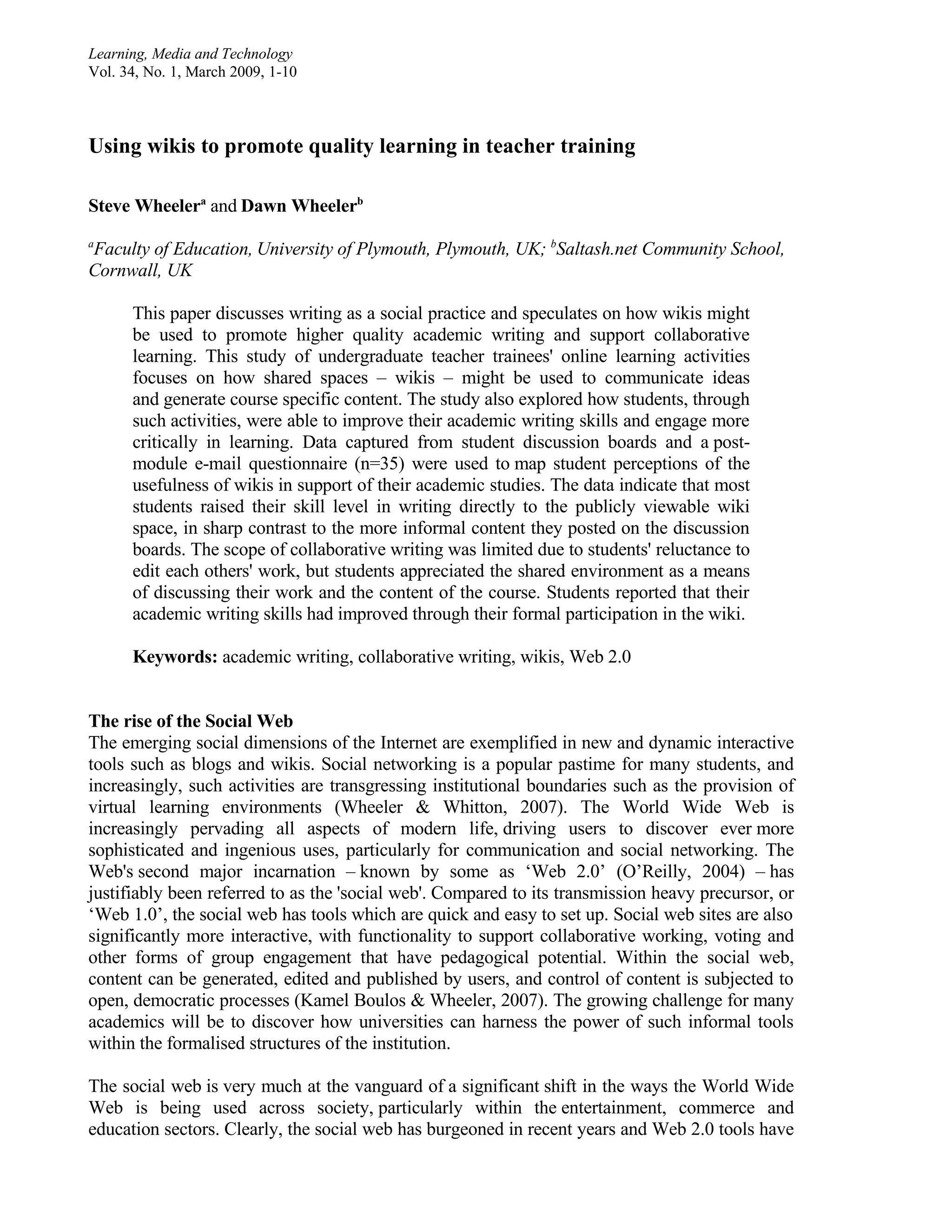
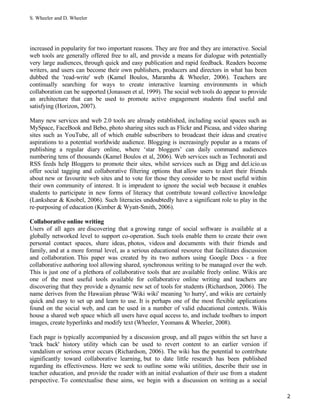
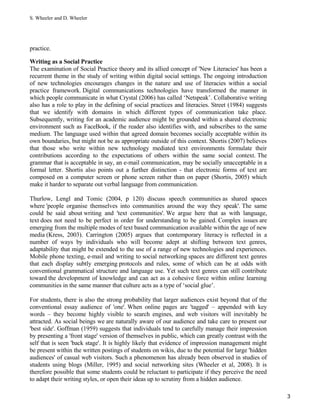
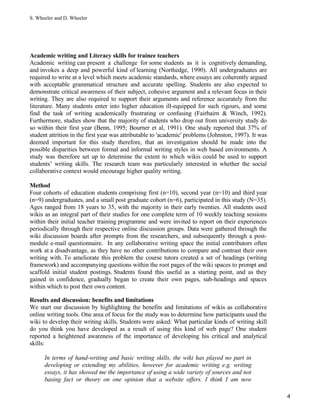
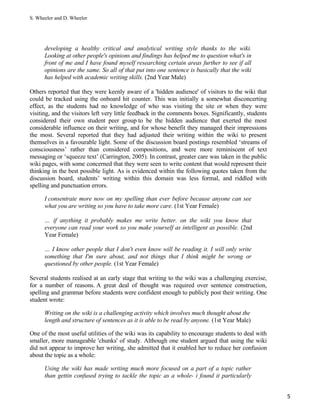
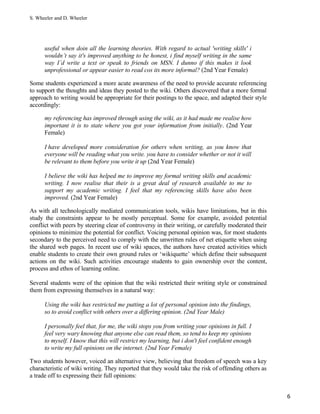
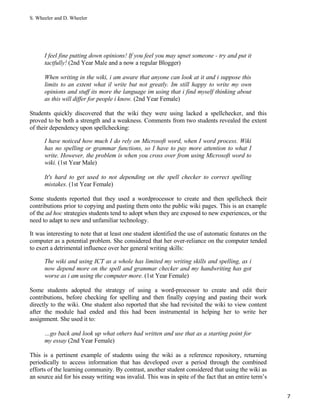
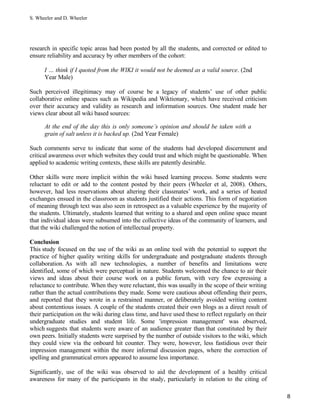
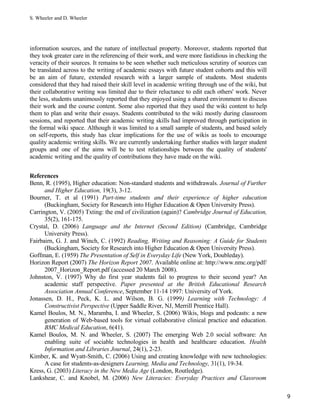
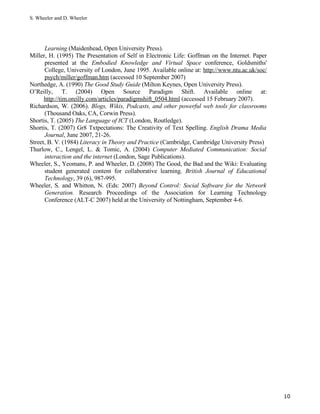

This paper explores the use of wikis to enhance academic writing and collaborative learning among undergraduate teacher trainees. The study indicates that wikis can improve students' writing skills and critical engagement, despite some limitations such as reluctance to edit peers' contributions. Data collected from discussions and questionnaires reveal students' awareness of their audience impacting their writing quality in the collaborative environment.









